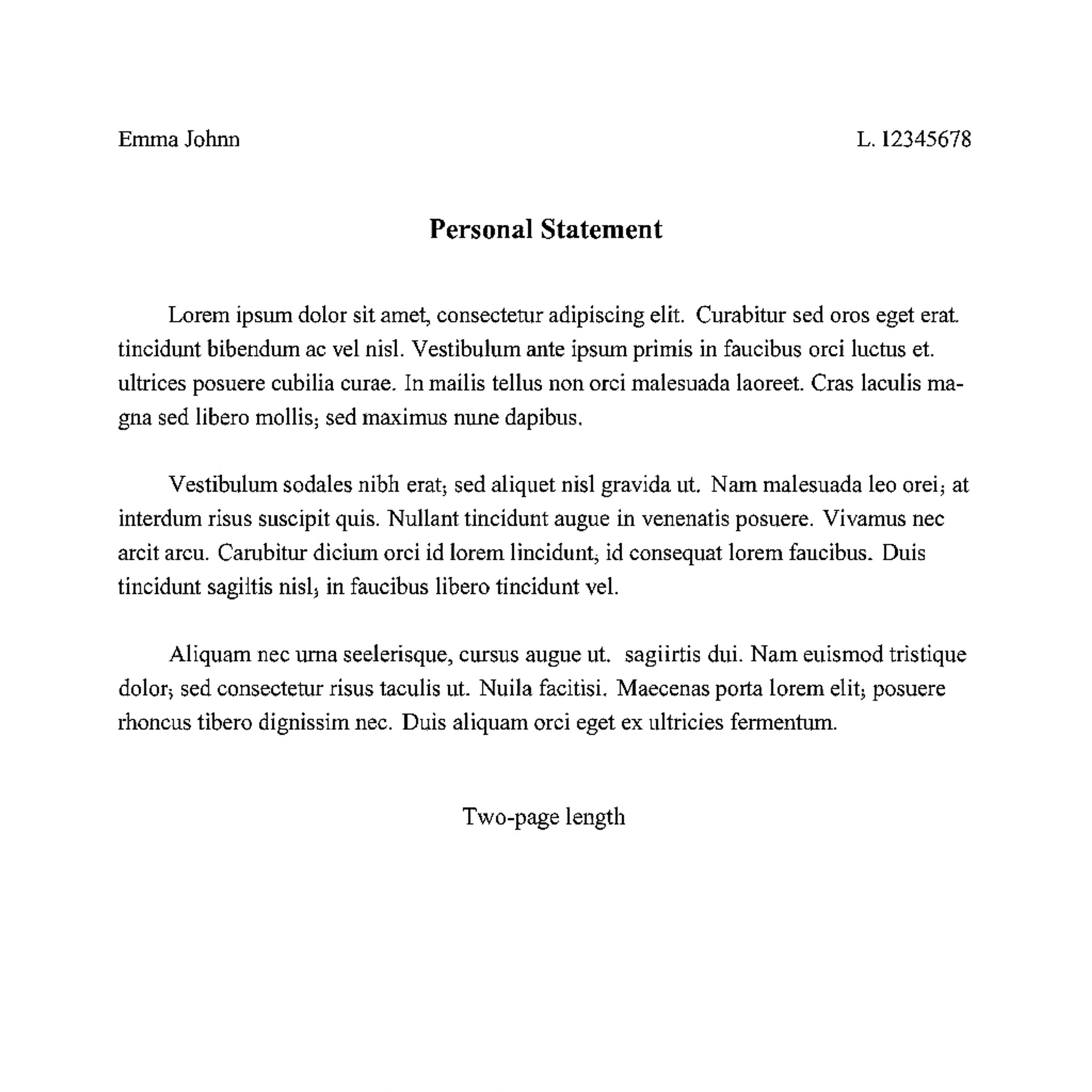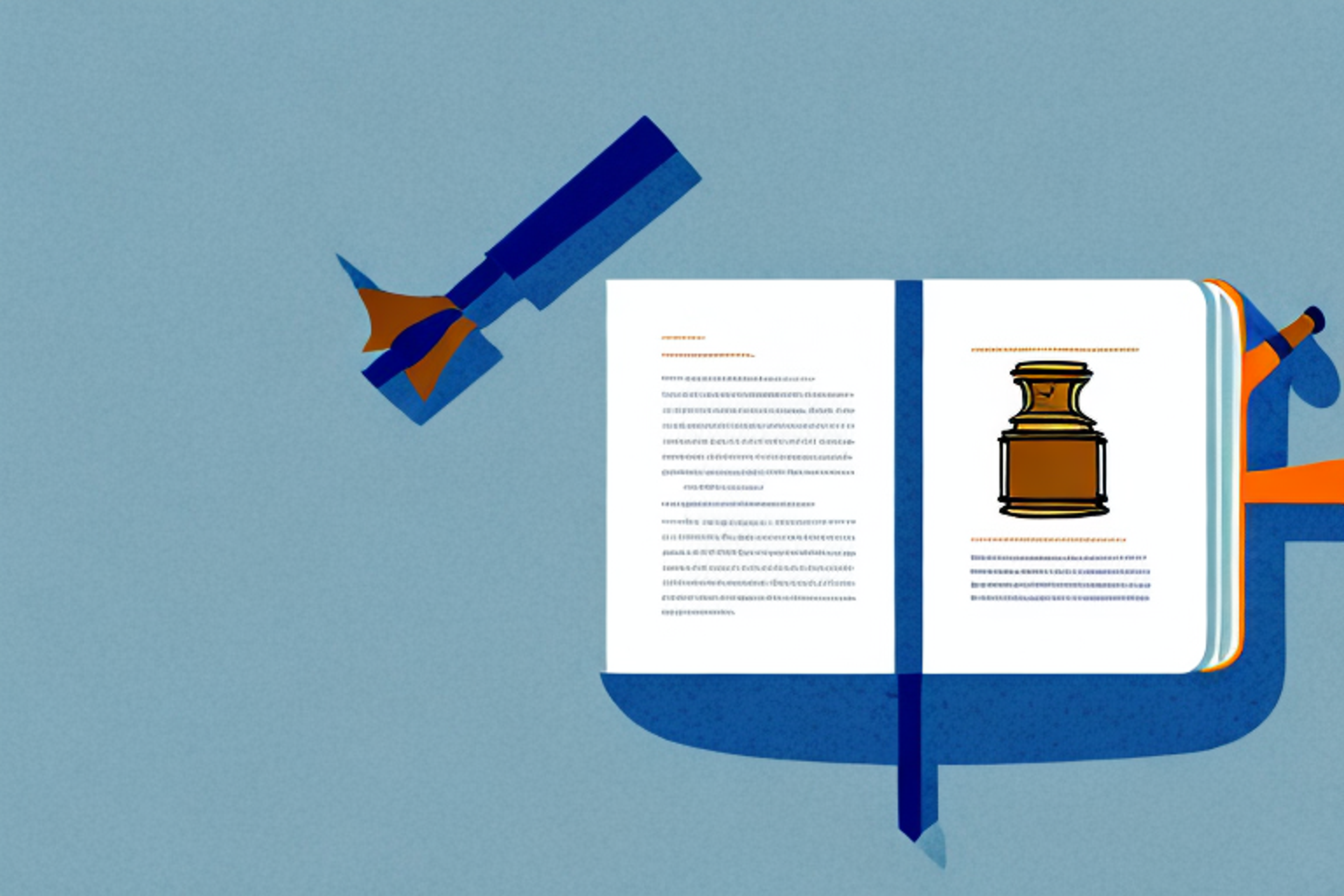Law School Personal Statement Format & Length: Guide & Tips
Learn the ideal law school personal statement format with expert tips, real examples, and proven strategies to impress any admissions committee.
Posted August 18, 2025

Table of Contents
Your law school personal statement is one of the most powerful pieces of your law school applications and often the deciding factor when your LSAT scores or GPA are on the borderline. While your transcript and standardized test scores show your academic ability, your personal statement is where the admissions committee learns who you are as a person, why you’re attending law school, and how you’ll contribute to the law school community and the legal profession.
Drawing from expert advice, top-performing essays, and candid insights from real applicants, this guide covers everything from law school personal statement format to the narrative techniques that hold the reader’s attention from start to finish.
What Is a Law School Personal Statement?
A law school personal statement is a two- to three-page essay where you use narrative form to share your motivations, life experiences, and professional experiences that make you a strong candidate for most law schools. Unlike a resume, it’s not a mini autobiography or a list of achievements — it’s a carefully focused story that connects your past experiences, a defining moment or turning point, and your reasons for pursuing law.
Admissions officers use it to assess:
- Your own voice - Is the story personal and completely individual to you? Could anyone else have written it?
- Clarity and writing skills - Lawyers need to write with precision. Even big words won’t help if they create confusion. As Georgetown Law says, “Big words do not denote big minds, just big egos.”
- Depth of reflection: Have you gone beyond recounting events to explain meaning, growth, and alignment with the legal profession?
Read: Law School Personal Statement: Guide & Admit Examples
Law School Personal Statement Format
Your law school personal statement format is the first impression you make before a single sentence is read. A perfectly formatted document signals professionalism, respect for instructions, and readiness for the rigors of the legal profession. While most law schools share common expectations, the admissions committee at each program may have specific rules you must follow to the letter. Failing to meet them, even with a brilliant essay, can hurt your chances.
Here’s the gold standard format (unless your target school specifies otherwise):
| Element | Best Practice | Expert Tip |
|---|---|---|
| Length | Two pages or less | A few schools (e.g., Michigan) allow 2–3 pages; rare exceptions allow up to 4 double-spaced pages with ½-inch margins. Never exceed unless the school explicitly permits it. |
| Spacing | Double spaced | Makes it easy for the admissions committee to read and annotate. Avoid single-spacing unless directed. |
| Font | Times New Roman, 11–12 pt | This is the most widely accepted professional font. If a school suggests alternatives (e.g., Garamond), follow their lead. |
| Margins | 1 inch all around | Some schools allow slightly smaller margins for longer limits — check instructions twice. |
| Header | Name, page number, LSAC number, “Personal Statement” | Consistency matters. Use the same header for all law school applications unless told otherwise. |
| Alignment | Left-aligned, indented paragraphs | Avoid block paragraphs unless required. Indents improve readability in narrative form essays. |
Pro tip (from experienced Reddit applicants & pre-law advisors): Create a polished “base” statement (~2 pages, double-spaced) as your starting point. Then adapt up or down depending on the law school. This prevents burnout, ensures consistency, and helps you avoid writing from scratch for every other law school application.

How Long Should a Law School Personal Statement Be?
Most law schools set the limit at two pages, double-spaced in 11- or 12-point font with 1-inch margins. Some schools, like the University of Michigan, allow up to three pages, and a few accept 3–4 pages with ½-inch margins. Always follow the law school’s specific instructions; exceeding the stated limit can frustrate the admissions committee and weaken your application.
For example:
- University of Michigan: Often accepts 2–3 pages.
- Some schools request 3–4 pages with ½-inch margins.
- Many T14 programs: Strictly cap at 2 pages.
Expert tip: When a school offers a broader range (e.g., up to three or four pages), resist the urge to use all the space unless your story genuinely needs it. Admissions officers read hundreds of statements each cycle. Concise, well-edited essays often leave a stronger impression than lengthy ones.
Why length matters in perception: If you exceed the stated limit without being invited to do so, the admissions committee may interpret it as overconfidence, implying you believe your personal statement deserves more room than other applicants’. This can subtly undermine your professional image.
How to Write the Best Version of Your Law School Personal Statement
Writing a standout law school personal statement isn’t about filling a template but about strategically shaping your story so the admissions committee can clearly see why you belong in the law school community and the legal profession.
1. Start With a Hook That Commands the Reader’s Attention
Your opening paragraph determines whether the reader leans in or skims ahead. Lead with a moment in your own voice. A turning point, challenge, or defining moment that reveals your character and motivation for pursuing law.
For example: "The first time I walked into a courtroom, I wasn’t there to observe, but I was there to interpret. My aunt, a single mother from El Salvador, had been summoned for a housing dispute she barely understood. As the judge asked questions, I translated her answers, watching her voice gain clarity through my words. By the time the case was resolved, I knew I wanted to spend my career giving others the same access to justice that I had given her in that moment.”
This works because it is personal, completely individual, and sets up a natural arc linking your past experiences to your decision to study law.
Pro Tip: Avoid opening with big words or generic claims. Concrete, emotionally resonant images keep the reader’s attention far better.
2. Show, Don’t Just Tell
Saying “I’m a leader” or “I care about justice” is forgettable. Instead, tell the story of when you proved those qualities. Use narrative form to integrate action, stakes, and outcome so your values are demonstrated rather than declared.
Pro Tip: If you can remove the claim and still understand the quality of the story, you’ve done it right.
3. Find and Stick to One Common Thread
Disjointed essays fade from memory. The strongest school personal statements have a single central idea, whether it’s your work as a legal assistant, your undergraduate education in political science, or a sustained interest in public policy, and every paragraph ties back to it.
Pro Tip: If an admissions committee member could sum you up in one clear sentence after reading, you’ve nailed your common thread.
4. Balance Story and Reflection
Think of your essay as one-third story and two-thirds reflection. The story earns interest; the reflection proves maturity, self-awareness, and alignment with the legal profession. A moment like beginning work in an after-school program for marginalized communities should be followed by what you learned, why it matters to your goal of attending law school, and how it prepares you for practice.
Pro Tip: A former pre-law advisor at a T14 recommends connecting lived experience to lawyerly skills without explicitly stating, “This made me a good leader” or “This proves I’m ready.” Let the reader conclude it themselves.
5. Tailor for Each University
Even if your law school personal statement is strong enough to use in multiple other law school applications, tailoring it for each university signals seriousness. Refer to professors, clinics, or programs that genuinely align with your interests, and show how you’ll contribute to that law school community.
Pro Tip: Keep a “Best Version” file for your master statement, then make short, targeted edits for each school instead of rewriting from scratch.
6. Edit Like a Lawyer
Approach editing like reviewing a legal brief. Cut big words that cloud meaning, replace filler with precise language, and watch for just big ego moments where the tone might read as overconfident. Read aloud to catch awkward pacing, and proofread every double-spaced page for formatting consistency.
Pro Tip: Editing should be as disciplined as drafting. Multiple passes, ideally with fresh eyes or trusted feedback, separate a good statement from a great one.
Common Mistakes to Avoid in Your Law School Personal Statement
Even strong law school personal statements can be weakened by avoidable errors. These missteps not only hurt your narrative but can signal to the admissions committee that you lack the focus, judgment, or attention to detail expected in the law school community and the legal profession.
- Overloading with Achievements - Your essay is not a resume in paragraph form. If the reader can find it on your resume, it doesn’t belong in your statement. Focus on life experiences and motivations that can only be shown through narrative form storytelling.
- Over-Discussing Controversial Legal Issues - Lengthy debates on polarizing topics risk alienating the reader. Your goal is to show personal growth and perspective, not to persuade them to adopt your position. Make yourself — not the issue — the main subject.
- Writing a Mini Autobiography - Trying to summarize your entire life leads to shallow coverage of too many points. Instead, pick one common thread and two or three relevant moments that fully illustrate it.
- Misusing Test Score References - Avoid trying to explain low LSAT scores or other standardized test scores in your personal statement unless specifically prompted. Use the essay to highlight strengths that numbers can’t convey.
- Neglecting Proofreading and Formatting - Typos, incorrect margins, or inconsistent double-spaced page formatting suggest carelessness. Proofread on paper, read aloud, and ask a pre-law advisor or trusted peer to review for both content and presentation.
Expert takeaway: Every line in your school personal statement should reinforce your readiness for attending law school and your potential to contribute to the legal profession.
Real-World Examples of Strong Law School Personal Statements
Example 1 – Community Advocacy and Legal Access
“On my second week as a volunteer at the downtown legal aid center, a father of three asked me if I could ‘help him understand the paper.’ The paper was an eviction notice. Over the next two hours, I walked him through the timeline, connected him to a pro bono attorney, and translated each step into Spanish so his wife could follow along. That afternoon, I realized that my ability to bridge language and law could mean the difference between a family losing their home or keeping it.”
Why it works: This example is personal, specific, and grounded in own voice. It shows direct service to marginalized communities, reveals a turning point that influenced the applicant’s path to pursuing law, and links a tangible skill to the needs of the legal profession.
Example 2 – From Undergraduate Research to Public Policy
“During my junior year at the University of Washington, my research on environmental regulations uncovered a loophole that allowed hazardous waste to be stored within 500 feet of public schools. I presented my findings at a city council meeting, expecting polite nods. Instead, the council passed an emergency measure to close the loophole. That moment — seeing my work change policy in real time — crystallized my decision to attend law school and focus on environmental justice.”
Why it works: It connects undergraduate education to a future in public policy and legal reform. The defining moment is tied to measurable impact, and the applicant shows they’ve already applied skills relevant to practice in the legal profession.
Example 3 – Personal Experience with the Justice System
“I was fifteen when I sat in the back of a courtroom, watching my cousin’s sentencing. The prosecutor’s words were precise, the defense’s argument restrained — but neither captured the full truth of the man I knew. That day, I promised myself I would become the kind of advocate who could tell my client’s complete story. In college, I sought every opportunity to prepare for that role, from interning at an immigration firm to working as a legal assistant for a public defender.”
Why it works: It begins with a personal, emotional moment tied to a family member’s case. The narrative moves seamlessly from a formative life experience into past experiences that reinforce commitment to attending law school and readiness for the law school community.
Final Checklist Before You Submit
- Have I stayed within two pages, double-spaced (unless otherwise instructed)?
- Does it sound like my own voice?
- Have I woven in one common thread throughout?
- Have I demonstrated qualities relevant to the legal profession and law school community?
- Have I removed unnecessary big words?
- Will it hold the reader’s attention from the first line to the last?
Bottom Line
The strongest law school personal statements don’t try to impress with big words or a laundry list of accomplishments. They tell a focused, reflective story that no other applicant could write, one that makes the admissions committee want to see you not just in their pile of admitted students, but walking into 1L orientation.
Don’t leave your law school personal statement to guesswork or generic advice. Work 1:1 with a Leland coach who’s helped applicants get into T14 programs, overcome average LSAT scores, and stand out to the admissions committee. They’ll help you find your story, sharpen every sentence, and make sure your final draft is the best version you can submit. Find your law school admissions coach here. Also, check out our law school application bootcamp, GRE exam prep bootcamp, and free events to unlock your full law school potential!
See: The 10 Best Law School Coaches | Law School Admissions Consulting That Works
Read these next:
- LSAC Credential Assembly Service (CAS): What it Is and How It Works for Law School Applications
- Acceptance Rates and Class Profiles of the T14 Law School
- How Many Law Schools Should You Apply To?
- T14 Law Schools: Acceptance Rates & Class Profiles
- Law School Application Deadlines (T20 Programs)
- How Many Letters of Recommendation for Law School: A Comprehensive Guide
- What is URM for Law School?
FAQs
Can I write about why I want to be a lawyer?
- Yes, but make it personal. A generic “I want to help people” isn’t enough. Tie it to a turning point, life experience, or past experience that shows why you’re pursuing law.
Is it okay to mention my LSAT score in my personal statement?
- Usually no. If you need to explain LSAT scores or another standardized test score, use an addendum. The personal statement should focus on your story, not your numbers.
Should I start with a quote?
- Only if it’s yours. Using someone else’s quote can make your school personal statement feel less like your own voice. A vivid anecdote or specific moment is a stronger hook.
Can I use the same personal statement for every law school?
- You can use a core version, but always tailor it. Mention professors, clinics, or programs at that university that connect to your goals in the legal profession.
What are some topics I should avoid?
- Skip long debates on controversial legal issues, overly detailed case law, or a mini autobiography that tries to cover your whole life. Focus on one common thread that ties directly to your path to attending law school.












